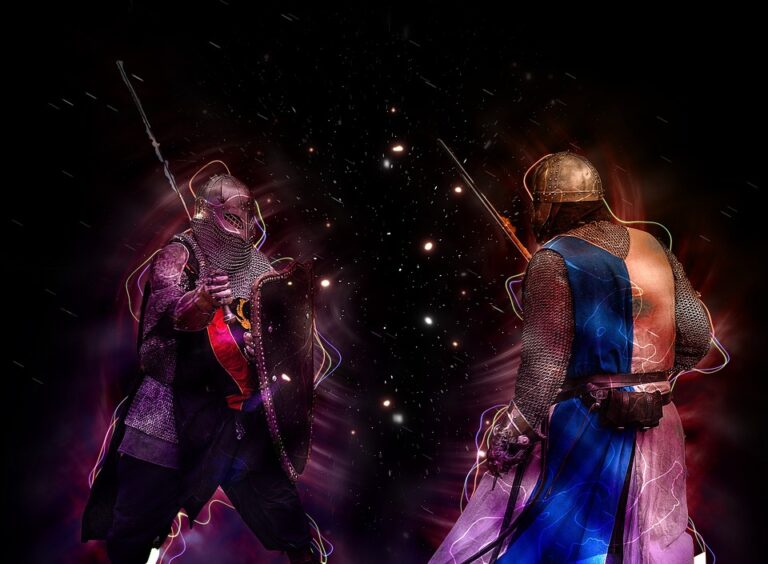The Psychology of Survival: What Battle Royale Games Teach Us About Competition
The rise of battle royale games has changed the landscape of the gaming industry, captivating millions of players around the globe. Titles like Fortnite, PUBG, and Apex Legends have not only dominated gaming charts but have also given enthusiasts a digital space to explore competition and survival strategies. But what underlying psychological mechanisms are at play in these intense environments? Let’s delve into the psychology of survival to discover what battle royale games can teach us about competition.
The Competitive Dynamics of Battle Royale Games
Battle royale games are designed around a central premise: players must outlast each other in a shrinking play area, often resulting in a last-player-standing scenario. This formula taps into core psychological drivers of competition and survival, making these games a fascinating case study in human behavior.
The Survival Instinct
At the heart of battle royale games lies the survival instinct, a deeply rooted psychological trait. Players are pushed into high-stakes situations requiring split-second decisions, resource management, and strategic planning. The adrenalin rush is palpable. According to a report by the Entertainment Software Association, approximately 68% of Americans play video games, with around 90% of them connecting with others through these platforms. This massive engagement indicates a widespread fascination with competitive survival.
The Role of Competition
Competition in battle royale games is multifaceted. Players must not only contend against their peers but also navigate environmental challenges, such as resource scarcity and ever-shrinking zones. This dual competition fosters a unique psychological environment where stress and excitement spark both adrenaline and strategic thinking.
-
Social Comparison: Battle royale games often lead to social comparisons, as players assess their performance against others. This can trigger feelings of inadequacy or a drive to improve—what psychologists refer to as "relative deprivation." By watching others succeed, players are urged to hone their skills and increase their effort to remain competitive.
- Group Dynamics: Many battle royale games include team-based modes, adding layers of complexity to competition. Players must collaboratively strategize while also navigating interpersonal dynamics. Research from the American Psychological Association highlights teamwork in gaming can enhance social skills, cooperation, and even conflict resolution.
Strategies for Success: Analogies to Real Life
The strategies players adopt in battle royale games offer rich insights into real-life competitive scenarios. As players engage in tactics like stealth, aggression, or alliances, they mirror behaviors we see in business and social contexts.
Example: Consider the analogy between a battle royale game and a corporate environment. Just as players must assess the strengths and weaknesses of competitors while managing their own resources (weapons, shields), corporate professionals must evaluate market dynamics, company resources, and competitor strategies. The psychological principles that underpin decision-making under pressure remain consistent, illustrating that gaming can offer invaluable lessons in strategy and survival.
The Psychological Payoff
Understanding how battle royale games impact player psychology reveals broader implications for our understanding of competition. Players not only find entertainment but also a framework for exploring their cognitive and emotional responses to high-pressure situations.
Data Insights
-
Attention Span: A study published in Computers in Human Behavior found that players who engage in fast-paced video games exhibit improved visual attention and enhanced decision-making abilities. This suggests that the competitive nature of battle royale games helps cultivate sharper reflexes and focus.
- Resilience Building: Research by Positive Psychology emphasizes that competing in high-stakes scenarios, such as those presented in battle royale games, can help individuals develop resilience. Players learn to cope with failure and bounce back from setbacks, skills that are invaluable in real-life competitive situations.
Conclusion: Lessons from the Arena
The psychology of survival in battle royale games illustrates profound insights into human competition, resilience, and social dynamics. As players navigate the digital battlegrounds, they glean lessons that extend far beyond the gaming world. From honing decision-making skills to building teamwork abilities, the impact of these games resonates well into our everyday lives.
Internal Links for Further Exploration
- How Gaming Enhances Teamwork
- The Impact of Competition on Mental Health
- Lessons from Competitive Gaming
External Links for Credibility
In conclusion, battle royale games serve as more than mere entertainment; they offer a lens into the psyche, teaching us crucial survival strategies applicable to many competitive realms of life. Embrace the lessons from the arena and elevate your competitive mindset!
Suggested Multimedia
- Image 1: A screenshot from a popular battle royale game, showcasing the competitive environment (alt text: "Battle Royale game showcasing competitive survival").
- Image 2: An infographic illustrating statistics about player engagement in battle royale games (alt text: "Statistics on Battle Royale game popularity").


